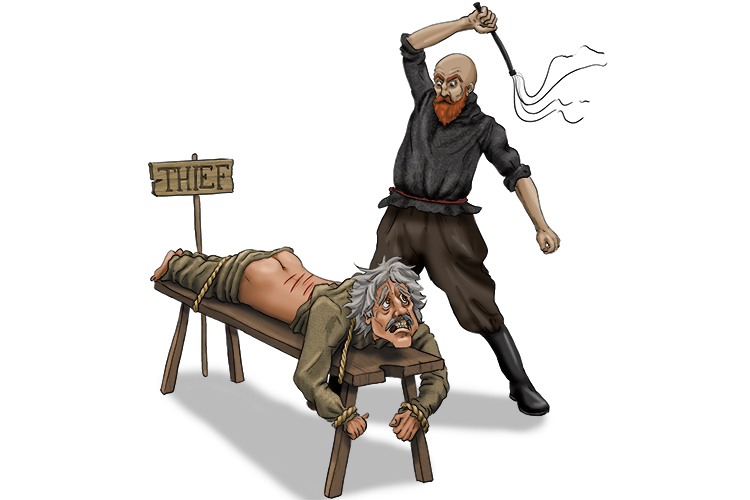Corporal Punishment – Punishment in which physical pain is inflicted on the criminal
To remember the meaning of the term Corporal Punishment, use the following mnemonic:
The army corporal hit him as punishment (corporal punishment) and caused pain.

Corporal punishment is any punishment in which physical force is used with the intention of causing some degree of pain or discomfort.
Corporal punishment ordered by a court – also known as judicial corporal punishment – was once commonplace in many countries. A corporal punishment sentence could involve practices such as whipping, strapping or birching.

Most countries have now abolished judicial corporal punishment, but it does remain a form of legal punishment in some parts of the world, including a number of former British colonies and many Muslim-majority states.
In the U.S., judicial flogging was last used in 1952 in Delaware, when a wife-beater received 20 lashes.
Outside of judicial systems, corporal punishment is still administered by some parents in the form of smacking when they perceive their children have done something wrong.
This has been the subject of political debate in some countries. For instance, in some parts of the UK – Scotland and Wales – corporal punishment as a way of punishing children has been made illegal, while in England and Northern Ireland smacking a child currently remains legal as long as the parent can show it amounts to "reasonable punishment".
In education, corporal punishment was commonly administered by teachers using a cane, but has now largely been outlawed. For example, in England and Wales it was made illegal in 1987 at government-funded schools and, in 1999, at all other schools. By 2003, it had also been banned in Scotland and Northern Ireland.
Religious views on corporal punishment are varied – while it is enshrined in some religious laws, such as the Muslims' Sharia, and supported in some books of the Bible, many people of faith believe it to be wrong and counter-productive.




